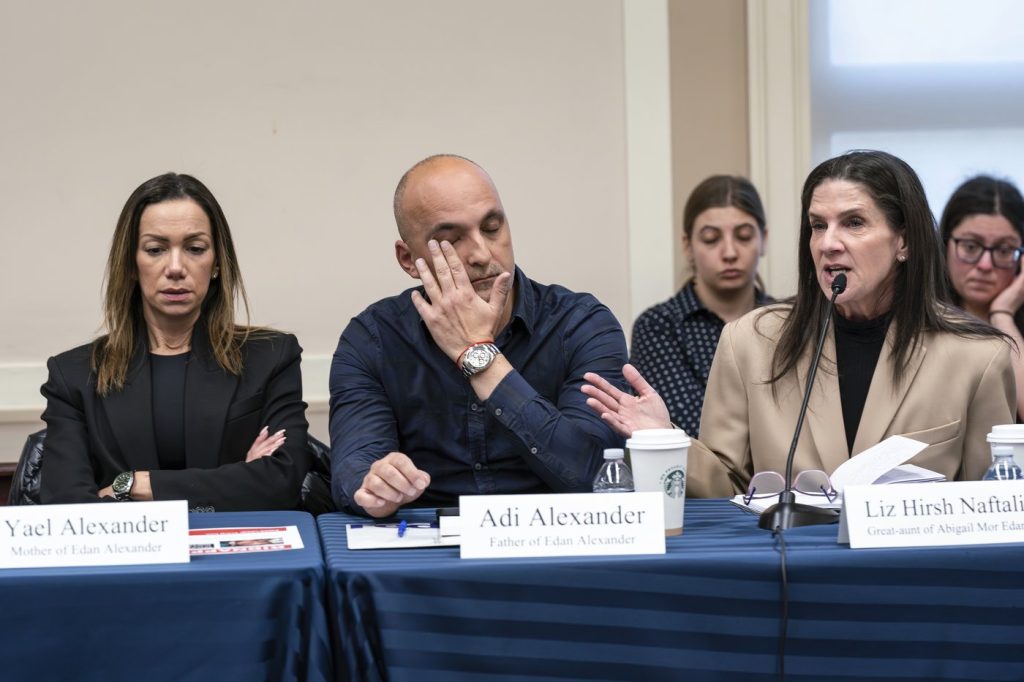TEL AVIV - Adi Alexander, the father of Edan Alexander, the last living American hostage held by Hamas in Gaza, remains cautious about placing blame on Israel’s government amidst the ongoing hostage crisis. While many families of those taken express frustration towards the Israeli authorities, Adi prefers not to engage in that debate. He is solely focused on the safe return of his son.
Edan Alexander, a 21-year-old Israeli-American soldier, is among the 59 hostages still in Gaza. Recently, Hamas announced it would release Edan along with the bodies of four other hostages if Israel recommitted to a stalled ceasefire agreement. However, the situation escalated when Israel resumed military actions in Gaza, breaking the previous ceasefire which had lasted two months and resulted in significant casualties among Palestinians.
The renewal of hostilities has reignited discussions in Israel regarding the fate of captives. Israeli Prime Minister Benjamin Netanyahu is facing increased domestic pressure, including mass protests concerning his approach to the hostage situation. Contrastingly, he is receiving calls from hard-line political allies demanding no agreements that do not include the complete destruction of Hamas.
Adi Alexander perceives Netanyahu as someone who wants to facilitate the return of all hostages, albeit on his own terms. In his opinion, U.S. President Donald Trump has a more straightforward focus on securing the safe return of the hostages. Adi has expressed his hope that the U.S. will act as a mediator between Israel and Hamas, urging the administration to continue its efforts to bring the hostages home.
Families of other hostages have similarly credited Trump, noting that his demands for the hostages’ immediate release played a pivotal role in the ceasefire negotiations. A phased deal had facilitated the release of 25 Israeli hostages and the transfer of the remains of eight others in exchange for around 2,000 Palestinian prisoners. The ceasefire was predicated on ongoing discussions for a second phase; however, negotiations faltered when Netanyahu hesitated to engage in meaningful dialogue.
In response, Netanyahu attempted to impose a new ceasefire plan that would require Hamas to release half of its remaining hostages, their main bargaining leverage, in exchange for a ceasefire extension and negotiations for a more lasting peace. However, Hamas has insisted that the remaining hostages can only be released under the terms of a comprehensive ceasefire and a complete Israeli withdrawal from Gaza, as outlined in the original agreement mediated by the U.S., Egypt, and Qatar.
Interestingly, direct engagement between the U.S. and Hamas has reportedly taken place for the first time since the State Department classified Hamas as a foreign terrorist organization in 1997. Adi has been in communication with U.S. officials like Adam Boehler and Steve Witkoff almost daily and maintains that negotiations continue, despite the resurgence of conflict.
Edan, who moved to Israel in 2022 and enlisted in the military, was kidnapped during the Oct. 7, 2023 attack, when Hamas took 251 people hostage and resulted in the deaths of approximately 1,200 individuals in Israel. Since then, news about Edan has been sparse. While a video released by Hamas showed him pleading for help, family members were relieved to see he was alive, even though the visual was emotionally difficult to watch.
Freed hostages have provided the Alexander family with snippets of information about Edan's condition, indicating he has lost a significant amount of weight but has been advocating for other hostages during his captivity. Adi believes that the resumption of fighting could inadvertently create opportunities for negotiation, as both sides might be forced back to the negotiating table due to growing chaos. He desires a swift end to the conflict, hoping for limited and targeted military actions that will ultimately facilitate discussions leading to the hostages' release.










